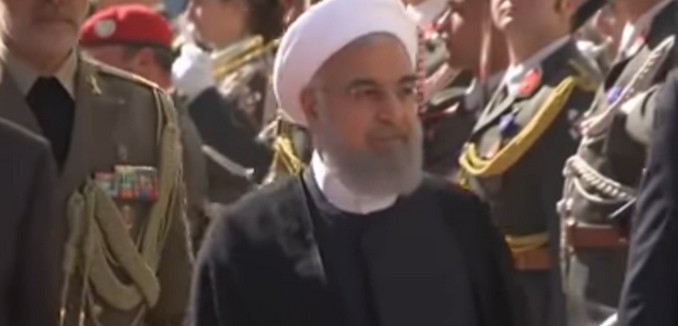The failed terror attack earlier this year in Paris has “sparked growing anxiety” in numerous European countries, the United States, and Israel, that Iran is increasing its intelligence activities abroad in preparation for more “audacious” terror attacks, The Washington Post reported Friday.
Citing American, European, and Middle Eastern experts familiar with the intelligence, Iran is “making contingency plans to strike at the country’s adversaries in the event of open conflict,” the Post said.
The Iranian preparations for possible attacks include deploying units to surveil opponents of the regime, as well as Jewish and Israeli organizations, in both Europe and the U.S. A Middle Eastern intelligence official told the Post that there has been a “definite uptick” in activities by Iranian agents recently. The official added that Iran is preparing “for the possibility of conflict.”
The Post noted that in August the U.S. Justice Department charged two Iranian men on espionage charges. They were accused of gathering information on Jewish and Israeli sites, as well as individuals associated with the rebel group MEK, and passing the information on to Iran.
The case of the attempted attack on an MEK rally in Paris this past summer, however, which included the participation of an Iranian diplomat, was assessed to be the “most alarming,” recent case. The official involved, Assadolah Assadi, was a high-ranking diplomat in the Iranian embassy in Vienna. Assadi has also been identified as the station chief of Iran’s Ministry of Intelligence, or MOIS, according to American and European officials.
Assadi recruited a couple, both of Iranian descent and living in Belgium, to carry out the plot and gave them a pound of explosives and a detonator. The couple was to detonate the device at an MEK rally in Paris, which was to be attended by thousands of people, including Rudolph Giuliani, President Donald Trump’s personal lawyer.
Though Assadi and Iran deny it, the couple, who are working with authorities, identified Assadi as their handler.
Because the couple lived in Belgium and was arrested there, Belgium is taking the lead in the investigation.
French officials have responded by accusing MOIS of planning the attacks and freezing the assets of two Iranian intelligence officials. “This extremely serious act envisaged on our territory could not go without a response,” a joint statement by France’s interior, foreign, and economy ministers said. “In taking this decision, France underlines its determination to fight against terrorism in all its forms, particularly on its own territory.”
French authorities have also raided one of the largest Shiite religious institutions — one that has ties to Iran — in the country and arrested three people.
Assadi’s arrest “tells you, I think, everything you need to know about how the government of Iran views its responsibilities in connection with diplomatic relations,” White House national security adviser John Bolton said to reporters earlier this month. Bolton characterized Iran as “the central banker of international terrorism.”
In a similar vein, Secretary of State Mike Pompeo said last week that the Paris terror plot “lays bare Iran’s continued support of terrorism throughout Europe.”
A German official told the Post that the thwarted Paris attack could properly be described as “state terrorism,” but that French and German leaders “would rather play the danger and level of interference down,” in order to protect the 2015 nuclear deal with Iran.
However, Norman Roule, a former CIA official with 34 years of experience, who retired last year as the national intelligence case manager for Iran, warned that if Europe doesn’t respond forcefully, Iran will conclude that it “can get away with pretty much anything.”
Roule noted that the failed 2011 Iranian plot to kill the Saudi ambassador in Washington D.C., which would have caused significant civilian casualties, as well as Iran’s ongoing support for terror groups and cyberattacks, haven’t prompted a strong response. “My fear is that Iran may well believe they have yet to reach our red line, and this is a recipe for further attacks,” Roule assessed.
Roule reinforced this point in a recent interview with The Jerusalem Post, “There is no question Iran is the primary engine of destabilization in the region and the international community. This must be stopped and Iran must be compelled to cease its behavior.”
In his speech before the United Nations General Assembly last month, Israeli Prime Minister Benjamin Netanyahu criticized European leaders for “laying out the red carpet for President Rouhani,” promising to give Iran more money the same week that “Iran was caught red-handed for trying to murder European citizens.”
[Photo: AP Archive / YouTube ]




